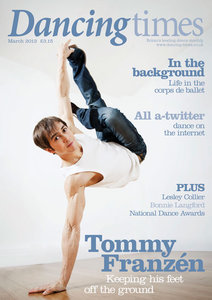History
Dancing Times, first published in 1894 as the house magazine of the Cavendish Rooms, London, a ballroom dancing establishment, is the oldest monthly devoted to dancing. It was bought in 1910 by Phillip J. S. Richardson and T. M. Middleton and transformed into a national periodical, covering all forms of dancing, and reporting worldwide. [2]
Largely through the initiative of Richardson, and his contacts throughout the dance teaching and performing profession, it played an instrumental part in the founding of the Royal Academy of Dancing (now Dance), the Camargo Society for the encouragement and presentation of British ballet, (1930–33), and the British Board of Ballroom Dancing (now the British Dance Council), which codified the technique and controls the standards of the “English Style” of ballroom dancing.
Richardson continued as editor until 1958 when he was succeeded by A. H. Franks, journalist and author of books on ballet and social dancing, but remained president until his death in 1963. Franks split off the ballroom section of the magazine into a second periodical, Ballroom Dancing Times, and in 1962 doubled the format of Dancing Times to its present size of A4. Franks died suddenly in 1963 and Mary Clarke, then assistant editor, became editor. In 2001 the ballroom magazine was redesigned and relaunched as Dance Today, still in the smaller format but devoted to a far wider range of social dance. The magazine is now edited by Nicola Rayner.
Dancing Times was edited by Jonathan Gray, from Clarke's retirement from the editorship in 2008 until its closure.
In August 2022, the magazine announced that it would cease publication following the September 2022 issue. [3]
This page is based on this
Wikipedia article Text is available under the
CC BY-SA 4.0 license; additional terms may apply.
Images, videos and audio are available under their respective licenses.
